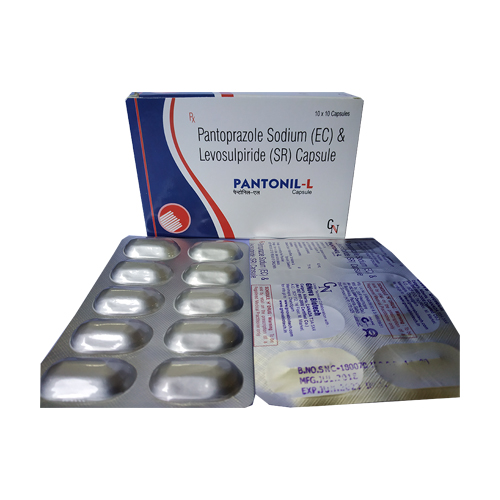The management of gastric disorders is a major challenge in modern health. Among the most commonly prescribed medications, we find pantoprazole, a proton pump inhibitor (PPI) used to reduce stomach acid secretion. This treatment is indicated for a variety of conditions, including gastroesophageal reflux disease, gastric ulcers and gastritis. Its ease of oral administration, often recommended one hour before meals, makes it a preferred choice for many patients.
However, the prescription of pantoprazole requires special attention, particularly with regard to side effects. Although this medication is generally well tolerated, it can cause side effects such as dizziness, visual disturbances or even more serious complications in certain patients. Regular monitoring is therefore essential to ensure the adequacy of the treatment, especially in people with severe liver problems or other comorbidities. Understanding the issues related to the prescription of pantoprazole and its side effects is crucial to ensure optimal and safe use of this medication.

THE pantoprazole is a medication commonly used to treat conditions related to excess stomach acid, such as gastroesophageal reflux disease (GERD) and stomach ulcers. As a proton pump inhibitor (PPI), it works by decreasing the production of acid by the stomach. Its prescription is generally done within a specific medical framework, taking into account the patient’s state of health, their medical history and possible drug interactions.
Indications and dosage of pantoprazole
THE pantoprazole is indicated primarily for the treatment of the following conditions:
- Gastroesophageal reflux : This condition is often the result of stomach acid backing up into the esophagus, causing heartburn and chest pain.
- Gastric and duodenal ulcers : Pantoprazole is often prescribed to treat and prevent ulcers associated with the use of nonsteroidal anti-inflammatory drugs (NSAIDs).
- Zollinger-Ellison syndrome : This rare condition, characterized by excessive acid production, can also be effectively treated with this medication.
Concerning the dosage, the pantoprazole is usually administered in gastro-resistant tablets, often at a dose of 20 mg or 40 mg, depending on the medical indication. It is crucial to take it one hour before a meal, accompanied by a glass of water. Patients with severe liver problems should be especially careful and limit their consumption to one 20 mg tablet per day to avoid potential complications.
Possible side effects of pantoprazole
Like any medication, pantoprazole may cause side effects. It is essential to be aware of this so that you can react quickly if unwanted symptoms appear. Here are the most commonly reported side effects:
- Dizziness and visual disturbances : These effects may be of particular concern, especially for people driving or using machines. It is recommended to tolerate the treatment well before carrying out such activities.
- Dry mouth and joint pain : These symptoms, although less common, are also noted. They can affect daily comfort and require medical attention.
- Neurological effects : Disorders such as depression, disorientation and even hallucinations have been observed, especially in predisposed patients.
- Decreased absorption of vitamin B12 : As an acid-lowering agent, pantoprazole may impair the absorption of this essential vitamin, possibly leading to long-term deficiencies.
Some side effects may be more serious, such as allergic reactions or liver problems. It is advisable to consult a doctor immediately in the event of unexpected manifestations. For more details about side effects, you can consult reliable sources like Santors Or the ANSM.
In summary, pantoprazole is an effective medication for several conditions related to stomach acid, but it is essential to know the precise indications as well as the potential side effects. Administration must always be done under the supervision of a healthcare professional to ensure optimal and safe use.

Pantoprazole FAQs
What is the main use of pantoprazole? This medication is primarily prescribed to treat disorders related to stomach acid, such as gastroesophageal reflux disease.
How should pantoprazole be taken? It is recommended to take it one hour before a meal, with a glass of water, and not to chew the tablet.
What are the possible side effects of pantoprazole? Side effects include dizziness, visual disturbances, and symptoms such as dry mouth or joint pain.
Can pantoprazole cause drug interactions? Yes, it can interact with certain medications. It is therefore essential to inform your doctor of all current treatments.
Who should not take pantoprazole? People with severe liver problems should not exceed one 20 mg tablet per day.
Why might pantoprazole affect the absorption of vitamin B12? By reducing stomach acid, this medication may influence the absorption of this essential vitamin in the body.
What symptoms should prompt you to consult a doctor when taking pantoprazole? Depression, hallucination, disorientation or other mental confusion are worrying signs to discuss with a healthcare professional.
Can pantoprazole cause a rebound effect? Yes, upon stopping treatment, some patients may experience an acid rebound effect, leading to a temporary return of symptoms.
When is the best time to consult a doctor regarding pantoprazole? It is advisable to discuss this before starting treatment, but also if side effects appear or if symptoms persist.












